
An exotic album of tradition-spanning improvisation from the trio of tenor saxophonist Ivo Perleman, oud player Gordon Grdina and percussionist Hamin Honari on tombak and daf, avoiding any cliches of "world fusion" as the effusive Middle Eastern rhythmic devices propel Perelman and Grdina into joyful flights of ecstatic playing that bridge the East and West.
In Stock
Quantity in Basket: None
Log In to use our Wish List
Shipping Weight: 4.00 units
EU & UK Customers:
Discogs.com can handle your VAT payments
So please order through Discogs
Sample The Album:
Ivo Perelman-tenor saxophone
Gordon Grdina-oud
Hamin Honari-tombak, daf, percussion
Click an artist name above to see in-stock items for that artist.
UPC: 5906395187713
Label: Not Two
Catalog ID: MW 1011
Squidco Product Code: 29996
Format: CD
Condition: New
Released: 2021
Country: Poland
Packaging: Cardboard Gatefold
Recorded at Park West Studios, in Brooklyn, New York, in January, 2020, by Jim Clouse.
"Ivo Perelman has a life-long passion for the guitar and it was his first instrument before he switched mainly to saxophone. He was a child prodigy on guitar and studied the Isaias Savio classical guitar method. Savio was a great Brazilian/Uruguayan classical guitar pedagogue (Lius Bonfa, Paulo Bellinati being amongst his students) and Perelman studied with a few of his protégés during his teenage years.
Perelman's Brazilian roots remain part of his persona and often his music reflects his upbringing with hints of frevo, axe or choro rhythms as undercurrents. He now has one of the most distinctive voices on saxophone, especially in the altissimo range but remains also a chimera of Brazilian and American music, with his free blowing impulsive streak evolving from his diverse and eclectic musical background. Perelman's technique requires much practice and a delicate but intense embouchure. He has worked with a group of similarly minded improvisers for many years and developed a continuum of evolution through mutual ardent listening and playing. His music continues to develop and seek new challenges.
The challenge in this recording is the interplay between Perelman's sax and the oriental lute or oud of Gordon Grdina. The oud is part of a large family of Turkish and Iraqi instruments and composers include Munir Bashir and Cinuçen Tanrikorur. To add music which has tones redolent of the music's origins, Perelman and Grdina added the daf and tombak skills of Hamin Honari. The daf and tombak are hand-held percussion instruments of Eastern origin.
Honari's rhythms on the daf include some intrinsic variations of crossing meters. Perelman, meanwhile articulates, overblows and bites his reed at times whilst Grdina plucks and ripples his way to semi-mania. Each individual somehow comes together to form not a fusion but a three-way individualistic effect.
'The Purity of Desire' is a fearsome beast with which to open the recording, a devilish introduction by percussion over which the sax blows a chilling, repetitive storm of raspy sounds. The rhythmic patterns change yet all warp around a seemingly set 2/3 pattern. The finger splitting speed with which Perelman reacts to the intense percussive lines of oud and daf is extraordinary. At one point Perelman resorts to shouting with his sax, each repeated mote rising higher until he is squealing for a reprieve. Excellent to feel a sense of him being pushed ever further, his final held note in the sequence giving way to a descent of such speed it is a wonder the sax did not melt away. The final sax salvo over oud is deeply mesmeric.
' Bridge To The Soul' is dynamic with each individual rising in and out of the ether with refreshing patterns of rhythmic cadences, the oud sounding remarkably violin-like at times. Perelman sets up a swingy notion on the tenor sax in the middle section, which is playfully picked up and deciphered by the others, all the while the percussive intensity is relentless.
' Love is A Stranger' is began with scale ascents from Perelman, a bit of sighed phrasing and then it is filled, padded, melded and pressed by the addition of the other musicians into a pottage of sounds with a distinctive bass line provided by the oud under the sax and daf.
Grdina entices deep , echoing bass notes from his instrument which resonate throughout the piece whilst 'This Longing', introduced by breathy upper altissimo from Perelman, which is well suited to this Eastern infused number, is sweeter. The rhythmic challenges here come from all sides as the changes happen due to profound listening, all centred around the rise and fall of the strings.
'A Garden Beyond Paradise' is completely stand out with its multiplicity of rhythmic patterns, changes and developments. Fervid, and stuffed with textures and patterns which change at the drop of a breath or pluck or scratch. Poetic even, there is a lyrical quality to this track and an undeniable sense of completion.
' Music of A Distant Drum' on the other hand is gentle, infused with Eastern rhythmic atmosphere, even when the sax squeals across the top of the cadence at the start, the beauty of the oud, the scratchy, skin on skin sound of the percussion and the adventurous sax work wonders.
'The Joy That Wounds' is strong and the plangency provided by the tombak, which sounds like it belches forth echoed cannons, provides the atmosphere, which is darker and the sax picks this up, dropping down into guttural, lower register notes at times, whilst rising to the altissimo register at others. Changeable, a different listen each time, this is immense. The middle section positively swings with Perelman speak-squeaking over the top of the resonating percussion and plucked oud.
'Light Upon Light' has just about every meter, change and reaction you can imagine. Adventurous, proudly standing out as one of the major tracks on this recording, the reactions and bouncing off each other from the three musicians inspiring and so natural feeling.
This is one of the best recordings I have heard for a long time and the combination of the oud, sax and tombak is beautiful. Played by three musicians who inspire each other, challenge and push with an adventurous spirit the listener cannot help but be aware of. Perelman actually swings it out at several points, the rhythm so intoxicating it is as if he cannot help himself but it feels improvised, natural and a simple reaction to the deft rhythms.
Honari on the daf plays like a man possessed, his fingers bouncing off the skins like water droplets, whilst the oud is played by some dervish at times, by an angel at others. Perelman sings, sighs, retorts, leads, follows and struts his stuff like the blessed player he is, responding to the two musicians he had the inspiration to bring together for this stellar recording.
It is the intervals, the rhythms and the odd-timed division of labour between the three musicians which make this stand out as a recording, yet they also merge together, particularly on the final track, with a seemingly single-minded sense of what the rhythm now should be.
This provides a journey between musical worlds, between rhythmic identities and sounds of different surfaces, cultures and materials. A blend of ideas, of skin, strings, wood, brass and imagination."-Sammy Stein, The Free Jazz Collective
Get additional information at The Free Jazz Collective
Artist Biographies
• Show Bio for Ivo Perelman "Born in 1961 in São Paulo, Brazil, Perelman was a classical guitar prodigy who tried his hand at many other instruments - including cello, clarinet, and trombone - before gravitating to the tenor saxophone. His initial heroes were the cool jazz saxophonists Stan Getz and Paul Desmond. But although these artists' romantic bent still shapes Perelman's voluptuous improvisations, it would be hard to find their direct influence in the fiery, galvanic, iconoclastic solos that have become his trademark. Moving to Boston in 1981, to attend Berklee College of Music, Perelman continued to focus on mainstream masters of the tenor sax, to the exclusion of such pioneering avant-gardists as Albert Ayler, Peter Brötzmann, and John Coltrane (all of whom would later be cited as precedents for Perelman's own work). He left Berklee after a year or so and moved to Los Angeles, where he studied with vibraphonist Charlie Shoemake, at whose monthly jam sessions Perelman discovered his penchant for post-structure improvisation: "I would go berserk, just playing my own thing," he has stated. Emboldened by this approach, Perelman began to research the free-jazz saxists who had come before him. In the early 90s he moved to New York, a far more inviting environment for free-jazz experimentation, where he lives to this day. His discography comprises more than 50 recordings, with a dozen of them appearing since 2010, when he entered a remarkable period of artistic growth - and "intense creative frenzy," in his words. Many of these trace his rewarding long-term relationships with such other new-jazz visionaries as pianist Matthew Shipp, bassists William Parker, guitarist Joe Morris, and drummer Gerald Cleaver. Critics have lauded Perelman's no-holds-barred saxophone style, calling him "one of the great colorists of the tenor sax" (Ed Hazell in the Boston Globe); "tremendously lyrical" (Gary Giddins); and "a leather-lunged monster with an expressive rasp, who can rage and spit in violence, yet still leave you feeling heartbroken" (The Wire). Since 2011, he has undertaken an immersive study in the natural trumpet, an instrument popular in the 17th century, before the invention of the valve system used in modern brass instruments; his goal is to achieve even greater control of the tenor saxophone's altissimo range (of which he is already the world's most accomplished practitioner). Perelman is also a prolific and noted visual artist, whose paintings and sketches have been displayed in numerous exhibitions while earning a place in collections around the world." ^ Hide Bio for Ivo Perelman • Show Bio for Gordon Grdina "Gordon Grdina (born 18 February 1977 ) is a Canadian jazz guitarist and oud player. Grdina worked in the 2000s in Vancouver with his own formations; In 2002 he recorded his debut album The Grdina Trio (with James Danderfer and Simon Fisk). On his album Unlearn: Gordon Grdina's Box Cutter was also co-produced by Franois Houle. In 2006, Grdina presented the album Think Like the Waves in the trio with Gary Peacock and Paul Motian, which combined elements of Arab music and jazz genres. In the field of jazz, he was involved in 14 recording sessions between 2001 and 2012. Grdina works with his own trio (from Tommy Babin, bass, and Kenton Loewen, drums) as well as his ten-piece Haram ensemble, Mats Gustafsson, Tony Malaby, Mark Helias, Kent Kessler and Jeb Bishop. " ^ Hide Bio for Gordon Grdina • Show Bio for Hamin Honari "Hamin Honari is a Iranian-Canadian hand drummer who has specialized on the Persian hand drums Tombak & Daf. He has focused on adapting his drumming style and technique to accommodate many different genres of music. He has performed with the Dastan Ensemble, one of Iran's most well-known Persian classical music ensembles and has accompanied many amazing musicians and singers such as Salar Aghili, Parissa, Hossein Omoumi, Hossein Behroozinia, Saeed Farajpouri, and Itamar Erez. Hamin has been teaching for over 10 years and is working on creating his own courses for Tombak and Daf." ^ Hide Bio for Hamin Honari
11/18/2024
Have a better biography or biography source? Please Contact Us so that we can update this biography.
11/18/2024
Have a better biography or biography source? Please Contact Us so that we can update this biography.
11/18/2024
Have a better biography or biography source? Please Contact Us so that we can update this biography.
Track Listing:
1. The Purity Of Desire 6:00
2. Bridge To The Soul 7:28
3. Love Is A Stranger 4:50
4. This Longing 6:04
5. A Garden Beyond Paradise 6:13
6. Music Of A Distant Drum 5:38
7. The Joy That Wounds 8:04
8. Light Upon Light 9:24
Improvised Music
Jazz
Free Improvisation
NY Downtown & Metropolitan Jazz/Improv
Trio Recordings
Cultural Musics from Around the World
Search for other titles on the label:
Not Two.


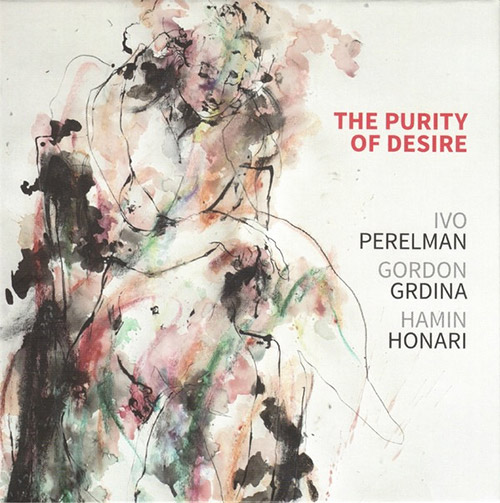
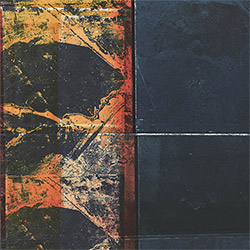
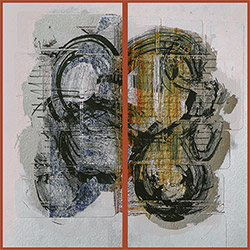

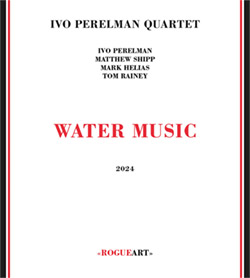

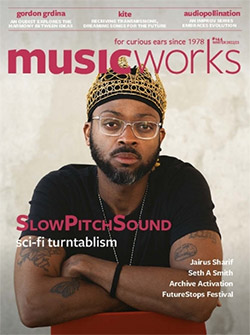
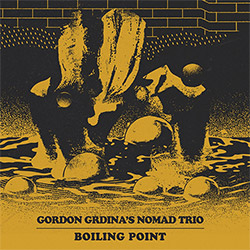
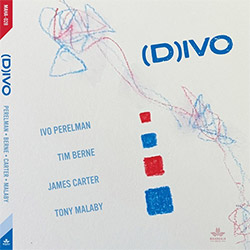

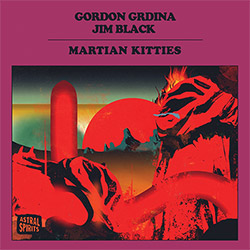

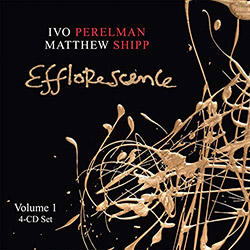
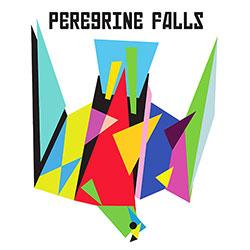

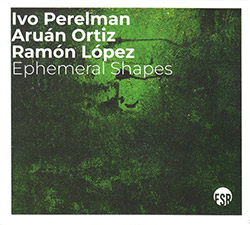

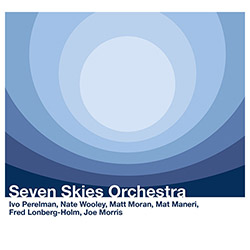
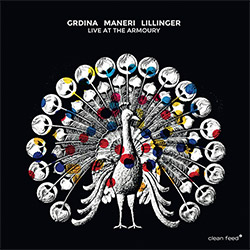
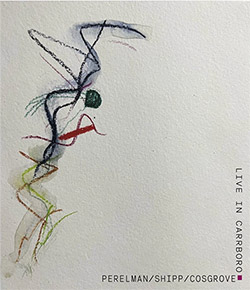
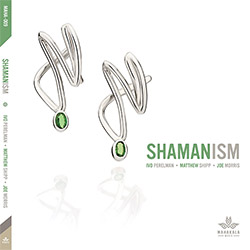
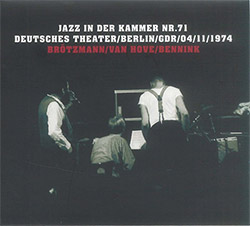

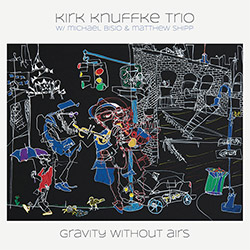
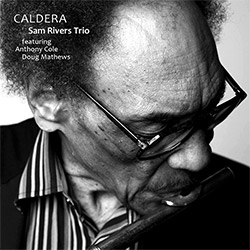
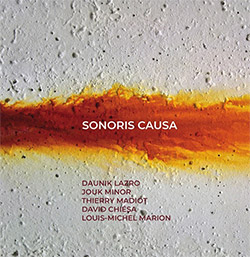
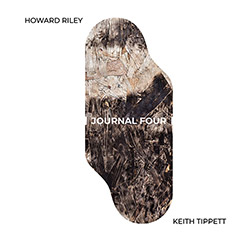














![Barker / Parker / Irabagon: Bakunawa [VINYL]](https://www.teuthida.com/productImages/misc4/35533.jpg)
![Blaser, Samuel / Marc Ducret / Peter Bruun: Dark Was The Night, Cold Was The Ground [VINYL 10-inch]](https://www.teuthida.com/productImages/misc4/35492.jpg)










![Warren, Kenny (Warren / Hoffman / Ellman): Sweet World [VINYL]](https://www.teuthida.com/productImages/misc4/35451.jpg)


![Blake, Ran / Dave Knife Fabris: Live Amsterdam 2006, First Visit [CD + POSTCARDS]](https://www.teuthida.com/productImages/misc4/35275.jpg)
![Sanna, Claudio: Compositori Sardi Contemporanei II [2 CDs]](https://www.teuthida.com/productImages/misc4/35317.jpg)












![Nevai, Nandor: <<The PRICE of FRONTIER>> Book 1: FULK [BOOK + 4 CDs]](https://www.teuthida.com/productImages/misc4/35464.jpg)
![Nevai, Nandor: <<The PRICE of FRONTIER>> Book 2: MARTIAL [BOOK + 4 CDs]](https://www.teuthida.com/productImages/misc4/35465.jpg)
![Nevai, Nandor: <<The PRICE of FRONTIER>> Book 3: JASSOM [BOOK + 4 CDs]](https://www.teuthida.com/productImages/misc4/35466.jpg)
![Nevai, Nandor: <<The PRICE of FRONTIER>> Book 4: HARD-WON [BOOK + 4 CDs]](https://www.teuthida.com/productImages/misc4/35467.jpg)






![DNS: Taking Big Bites Of The Khandas Three Cafes Deep [2 CDs]](https://www.teuthida.com/productImages/misc4/35334.jpg)




![Cleaver, Gerald: The Process [VINYL]](https://www.teuthida.com/productImages/misc4/34966.jpg)




![Alva Noto: HYbr:ID II [VINYL 2 LPs]](https://www.teuthida.com/productImages/misc4/35201.jpg)

![Baron, Derek / Luke Martin: Distinct and Concealed [CASSETTE + DOWNLOAD]](https://www.teuthida.com/productImages/misc4/35079.jpg)

![Lyle, Erica Dawn : Colonial Motels [CASSETTE + DOWNLOAD]](https://www.teuthida.com/productImages/misc4/35080.jpg)







![Alva Noto: HYbr:ID III [VINYL 2 LPs]](https://www.teuthida.com/productImages/misc4/35011.jpg)
![Kubisch, Christina / Trondheim Voices: Stromsanger 2022 For Six Voices And Electromagnetic Waves [VINYL]](https://www.teuthida.com/productImages/misc4/34628.jpg)








![Zurria, Manuel: Fame di Vento [3 CDs]](https://www.teuthida.com/productImages/misc4/35167.jpg)

![Granberg, Magnus / Nattens Inbrott / Skogen: Holde Traume, Kehret Wieder! [2 CDs]](https://www.teuthida.com/productImages/misc4/35038.jpg)
![Frey, Jurg: Outermost Melodie [2 CDs]](https://www.teuthida.com/productImages/misc4/35039.jpg)

![Pavone, Jessica: Reverse Bloom [VINYL]](https://www.teuthida.com/productImages/misc4/34895.jpg)




![Modney (Modney / Wooley / Gentile / Roberts / Pluta / Symthe / ...): Ascending Primes [2 CDs]](https://www.teuthida.com/productImages/misc4/34852.jpg)








![Elephant9 with Terje Rypdal: Catching Fire [VINYL 2 LPs]](https://www.teuthida.com/productImages/misc4/35355.jpg)
![Deerlady (Obomsawin, Mali / Magdalena Abrego): Greatest Hits [VINYL]](https://www.teuthida.com/productImages/misc4/34876.jpg)




![Haino, Keiji: Black Blues [2 CDs]](https://www.teuthida.com/productImages/misc4/35109.jpg)



![Surplus 1980: Illusion of Consistency [CD]](https://www.teuthida.com/productImages/misc4/35069.jpg)
![Staiano, Moe: Away Towards the Light [VINYL + DOWNLOAD]](https://www.teuthida.com/productImages/misc4/35037.jpg)




![Caveira (Gomes / Sousa / Abras / Ferrandini): Ficar Vivo [VINYL]](https://www.teuthida.com/productImages/misc4/34643.jpg)
![Gregg, J. J. / David Van Auken: Lunar Prairie [CD w/ DOWNLOAD]](https://www.teuthida.com/productImages/misc4/34611.jpg)

![Coultrain: Mundus [VINYL]](https://www.teuthida.com/productImages/misc4/32439.jpg)
![Mattin: Songbook #6 [VINYL]](https://www.teuthida.com/productImages/misc4/27317.jpg)
![Punkappella: Wake Up [7-inch VINYL]](https://www.teuthida.com/productImages/misc4/17519.jpg)
![Residents, The: WARNING: UNiNC.: Live And Experimental Recordings 1971-1972 [VINYL 2 LPs]](https://www.teuthida.com/productImages/misc4/31521.jpg)
![Coultrain: Phantasmagoria [VINYL]](https://www.teuthida.com/productImages/misc4/30142.jpg)
![Lennon, Sean Ono: Asterisms [VINYL]](https://www.teuthida.com/productImages/misc4/34517.jpg)

![Rotem Geffen: The Night Is The Night [VINYL]](https://www.teuthida.com/productImages/misc4/34631.jpg)
![Coley, Byron: Dating Tips for Touring Bands [VINYL]](https://www.teuthida.com/productImages/misc4/17906.jpg)

![Lost Kisses: My Life is Sad & Funny [DVD]](https://www.teuthida.com/productImages/misc4/lostKissesDVD.jpg)